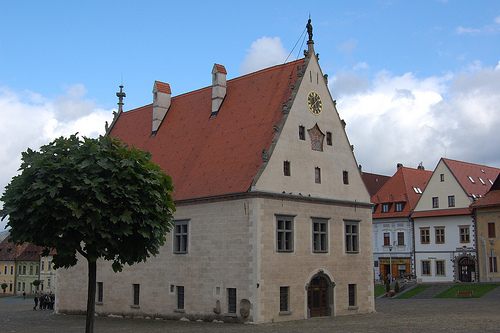Slovakia is a Central European country with a population of more than five million. It is bordered by Poland to the north, Hungary to the south, the Czech Republic to the west, and Ukraine to the east.
Slovakia is popular for its natural thermal springs and world-renowned spas that draw a multitude of visitors each year. The country is also home to many natural attractions such as the Tatra mountains, hundreds of caves and areas that have been classified as UNESCO heritage sites.Since Slovakia is a member of the European Union, anyone is allowed to buy property in the country. There is no discrimination on the basis of citizenship in the real estate market. This applies to all types of property, ranging from countryside homes to apartments in the city. However, agricultural and forest land is exempted from this rule, since the law states that foreigners are not permitted to buy or receive such land as gifts. However, foreigners can buy or receive such land if the buyer has conducted business on the land for at least three years and also has temporary residence in Slovakia.
The real estate market in Slovakia was fully liberalized in 2011. Expats can expect to find some of the best opportunities in Europe here. The prices are affordable, and those who want to sell later will be able to do so easily and with good returns.
Process of buying property
Buying property in Slovakia is a straightforward process.
– Once a property has been selected, the buyer makes an offer and once the seller accepts, both parties agree on the terms of trade.
– The buyer places the entire amount, or the agreed deposit, with a notarial custodian or in a bank account where it will remain until the property rights are transferred. Both parties sign an official pre-contract agreement, which specifies the terms of the deal. – The agreement commits both parties to the deal, and therefore if any one party changes their mind, they are liable to pay the agent’s fees to the other party.
– It is advisable for the buyer to have the property surveyed by an independent surveyor. This report is then sent to the solicitor, and on the basis of this, the sales contract is drawn up.
– The buyer and seller sign the sales contract and a notary verifies the seller’s signature.
– It usually takes about four weeks to confirm the purchase contract and create the ownership permit. Once the buyer receives this permit, the purchase amount is released to the seller.
If you are using the services of a real estate agency, they usually provide legal services and also prepare all the documents required for transfer of ownership. You may even appoint a lawyer to prepare the sales contract, although they will not be able to oversee the actual sale.
Fees and expenses
Apart from the actual property price, the costs involved in buying property in Slovakia are quite low.
– Depending on the real estate agency or lawyer you hire, the expenses on the sales contract may vary between 500 to 600 Euros.
– The cadastral office may charge administrative fees of about 300 Euros to enter the details into the cadaster and also provide the document of property ownership.
– Registering with tax authorities and paying the local taxes may amount to 100 Euros annually.
– Property tax and other taxes are approximately 30 Euros a year.
– If the property is sold within a period of five years upon construction, VAT amounting to 19 percent is applicable.
– If you plan to let the property after buying, you need to factor in the costs of the managing agent. This can amount to about 200 Euros annually. There is also a tax of 19 percent on rental profits.
– In Slovakia, one does not have to pay real estate transfer tax. But income tax of 19 percent is applicable. The amount is calculated as the difference between the property price at the time of acquisition and the selling price. There are some options to reduce the tax burden as per the Income Tax Act and sellers can take advantage of these.
Have you bought or sold property in Slovakia? How did you find the process? Let us know in the comments.

